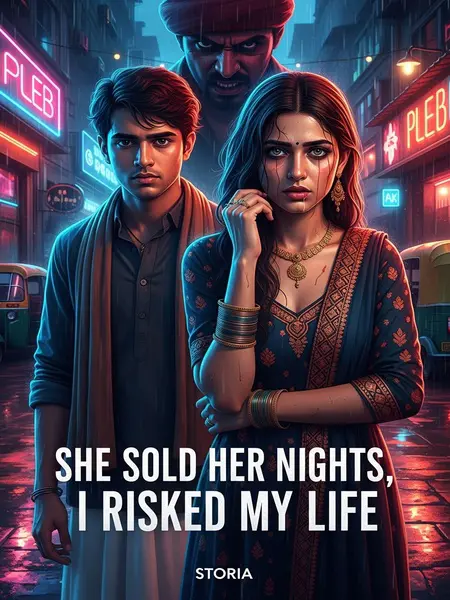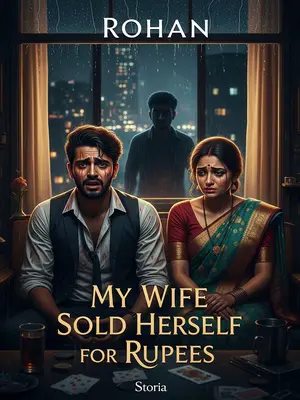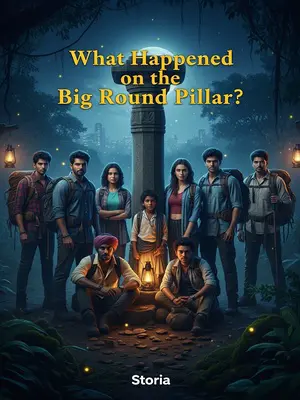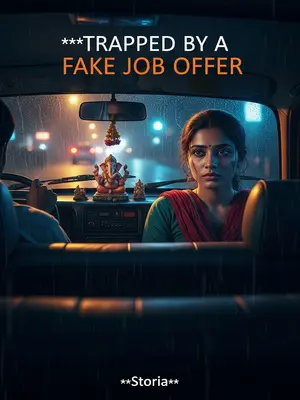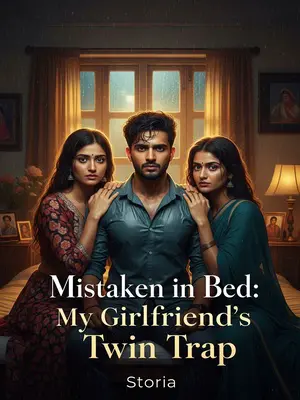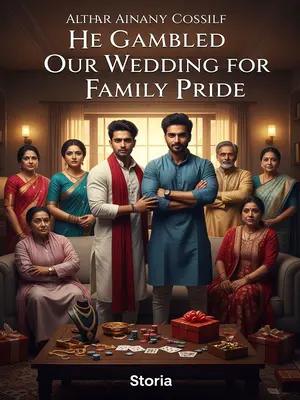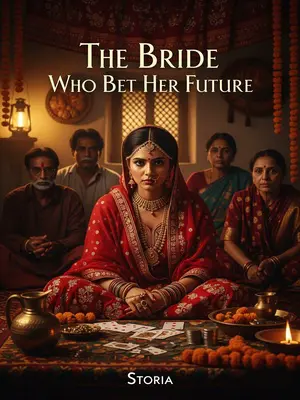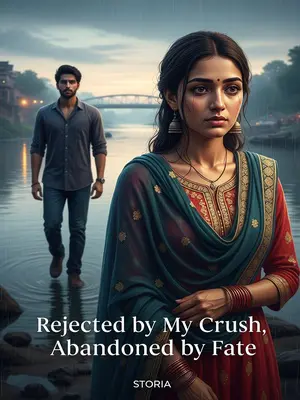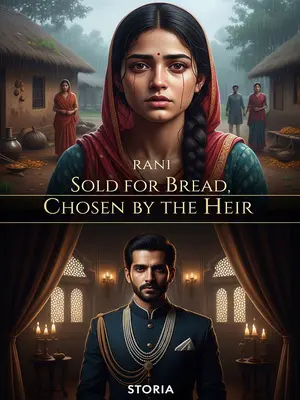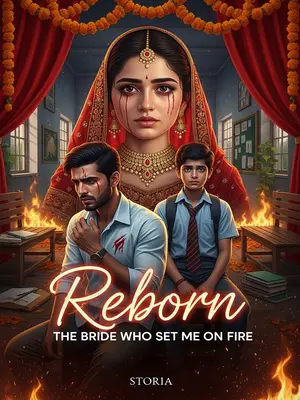Chapter 3: Lost and Found
For several days, I was distracted at work. Old Prakash took one look at me and grinned, “Arrey, kid, tu toh fida ho gaya lagta hai.”
He cornered me at the office water cooler, eyebrows dancing like a gossiping aunty. I rolled my eyes, but couldn’t hide my smile.
“Chal nikal. Sab tere jaise nahi hain, har waqt line maarte rehte.”
I tossed my empty chai cup, trying to sound annoyed. He just laughed, slapping my back.
“Jyada samjhana matlab kuch chhupa raha hai. Dekh, college student—khana peena, ladkiyan sab nature ka hai. Nahi mile toh mat dhoond, nahi toh mat khao.”
He cackled, quoting some old film, but there was wisdom in his words. The office peon passed by with a rattling tea tray, smirking at us. I felt my ears go hot again.
Old Prakash’s words made me restless, and images of 25 flashed through my mind. During a quiet afternoon, I sneaked into the empty hostel common room, dialled her number on impulse.
The phone rang—beep, beep—and suddenly I wanted to hang up. But—
“Hello.” It was her. 25’s voice.
She sounded different on the phone—tired, softer, as if half-asleep.
“Main hoon,” I said, after a pause.
There was a silence, then a faint laugh. “Samjhi gayi. Kya hua, yaad aa gaya mujhe?” Her tone was slow, a little sad. I pictured her by a window, waiting for night to fall.
“Tu hi toh call ki thi us raat. Bas return call hai. Sota toh nahi disturb kiya?”
I tried to sound casual, but my heart was pounding.
“Nahi, TV dekh rahi hoon.”
Her voice was distant, as if she was only half in the conversation.
“Din ko rest nahi karegi toh raat kaam kaise karegi?” I made small talk, instantly regretting it.
“I didn’t take any clients last night. That time of the month.”
She said it plainly, matter-of-fact. I fumbled for words.
“Oh… waise, ajeeb sa lag raha hai. Sab theek toh hai?”
“Ugh, chhod na. Bad luck aaj. Dost ko station chodne gayi thi, wapas aayi toh wallet gayab.”
I could picture her pushing through the station crowd, only to find her wallet missing.
“Kahan kho gaya? Wapas jaake dekha?”
“Kya fayda? Bus mein hi gaya hoga. Paise nikalte waqt dekha tha, fir kuch stops baad gayab. Pickpockets, kya karein…”
Her voice was tired, not angry—like this had happened before.
“Zyada gaya?”
“Nahi, kuch hi so, kuch cards. Main toh report bhi nahi kar sakti. Sabse bura, ek locket tha—mummy ka diya hua. Paisa chalo, lekin woh… ab gaya.”
Her voice cracked, just a little. I felt a sudden urge to help, though I knew there was little I could do.
“Police mein de de, kya pata mil jaaye.”
I offered, but even I knew it was hopeless. A heavy silence filled the line.
“Jaane de. Jo gaya, so gaya. Kismat hi kharaab hai.”
I pictured her staring at the TV, wishing things were different. After we hung up, one thought stuck in my mind: I wanted to get her locket back. Foolish, maybe, but I couldn’t let it go.
I asked Old Prakash about the chances of recovering a stolen wallet on the railway station bus line.
We sat on the office parapet, sipping cutting chai. I kept my voice low, scanning the street as if the thief might overhear.
“Tera wallet gaya?” he asked, surprised.
“Nahi, ek dost ka. Area toh tu hi jaanta hai—kuch idea?”
He thought a moment. “Puch sakta hoon, par sun—yeh risky hai.”
He stubbed his cigarette, face turning serious. “Woh log seedhe nahi hain. Ek baar pange le liya, toh kuch keh nahi sakte.”
Two days later, he told me the railway station bus line was ruled by a local called ‘Dead Man Keshav.’ Every pickpocket had to hand over goods to him first, then he’d take a cut.
The name sent chills down my spine. Every city has a bhai like that—shadowy, unpredictable. I pictured gold rings, sharp eyes, someone who could make people disappear.
I asked Old Prakash to take me to Dead Man Keshav.
Even as I said it, my stomach churned. My brain replayed every gangster movie I’d seen.
“Dimag kharab hai kya? Woh log kuch bhi kar sakte hain.”
He stared at me. “Hero banne ka shauk mat rakh. Zindagi film nahi hai.”
“Hum kuch nahi karenge—sirf puchenge. Nahi mila toh chhod denge. Paisa uska hai, mujhe sirf locket chahiye.”
I tried to sound brave, but my hands were cold. I didn’t care about the money—just that tiny hope for her.
Old Prakash looked torn. “Bhai, main kabhi uss crowd mein nahi gaya. Pata nahi…”
I folded my hands, begging like I was asking for extra marks in an exam. He sighed, finally nodding.
After a long smoke, he said, “Theek hai, main puchta hoon. Lekin sun, wahan jaake sirf sunna, bolna kam. Jo hoga, dekhenge.”
I nodded so hard my neck hurt. My lips trembled as I tried to smile. I wondered if I should call my parents—just in case.
In a grimy chawl, Old Prakash took me to meet Dead Man Keshav. He sat on a battered sofa, cigarette in his mouth, playing cards with his gang. In the background, a TV blared a Marathi news channel; his goons chewed paan and exchanged wary glances.
Old Prakash greeted him, offering a cigarette. “Keshav Bhai…”
He bowed, voice respectful, hands folded like at a mandir.
Dead Man Keshav took the cigarette, tucking it behind his ear. He looked up, eyes sharp as blades, a faded Mumbai Indians cap perched on his head.
His face was gaunt, skin yellowish, almost corpse-like. But his left arm had a fierce Hanuman tattoo, the colours bleeding at the edges, freshly inked from a Mandai market studio. Both Hanuman’s eyes and Keshav’s were impossible to ignore.
“You’re the one Dashrath mentioned… Prakash Bhai?” Keshav asked, baring his teeth. His voice was rough, every word chewed and spat out. I could smell paan from across the room.
“No, no, just call me Old Prakash.” Prakash forced a smile, adding a quick, "Namaste, Keshav Bhai."
“Heh, Old Prakash. Kya chahiye?”
He shuffled his cards, eyes never leaving us. Prakash explained about the wallet, voice low and trembling.
Keshav flicked ash, sneering. “Yahan ka rule nahi pata tujhe, toh maaf kar deta hoon. Par sun—jo chori gaya, woh wapas nahi aata. Jitna nigla hai, utna nigla.”
His words were final. The room went silent, the only sound a temple bell ringing distantly, as if counting down.
Old Prakash pleaded, “Keshav Bhai, galat mat samjho. Sirf puch rahe hain. Nahi mila toh chhod denge…”
Sweat trickled down his face as he dabbed it with his gamcha.
“Chhod dena? Kya bola tha abhi?” Keshav glared, eyes fierce. He slammed his fist on the table. The goons tensed, paan-stained lips tight.
“Bas, chalte hain.” Prakash tugged my sleeve, but I stood firm. “Keshav Bhai, wallet rakh lo, mujhe sirf locket chahiye. Kaam ka nahi hai aapke.”
The men stared, surprised. My mouth tasted metallic. I felt sweat trickle down my back.
“Oh?” Keshav leaned forward, curiosity flickering. I tried to steady my breath.
“Chhod, chalte hain.” Prakash pulled again, but I shook him off. “Keshav Bhai, locket mil sakta hai?”
The TV anchor’s voice droned in the background. Everyone stared at me. Keshav laughed, “Bade himmatwala lagta hai tu. Chalo, ek mauka deta hoon. Bittu, leke aa scissors.”
His laughter was cold, echoing in the cramped room. The air was thick—no fan, no escape.
A short guy handed me scissors. Keshav said, “Apni koi bhi ungli kaat. Kaat lega, toh locket tera.”
The metal was heavy in my sweaty palm. I looked at Prakash—he shook his head, terrified.
My lips trembled. I set the scissors down. “Rehne de, chahiye nahi.”
“Chahiye nahi? Ab bol raha hai nahi chahiye?” Keshav kicked the table, stood up, and shouted, “Ungli kaat do iska!”
Chairs scraped, men shouted. My world narrowed to the sound of my own panicked breath.
